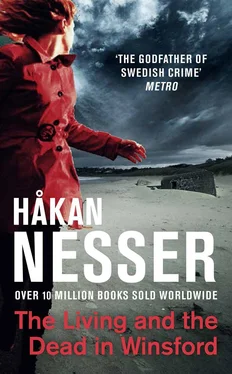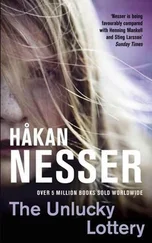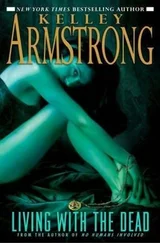Håkan Nesser - The Living and the Dead in Winsford
Здесь есть возможность читать онлайн «Håkan Nesser - The Living and the Dead in Winsford» весь текст электронной книги совершенно бесплатно (целиком полную версию без сокращений). В некоторых случаях можно слушать аудио, скачать через торрент в формате fb2 и присутствует краткое содержание. Год выпуска: 2013, Издательство: Mantle, Жанр: Криминальный детектив, на английском языке. Описание произведения, (предисловие) а так же отзывы посетителей доступны на портале библиотеки ЛибКат.
- Название:The Living and the Dead in Winsford
- Автор:
- Издательство:Mantle
- Жанр:
- Год:2013
- ISBN:нет данных
- Рейтинг книги:4 / 5. Голосов: 1
-
Избранное:Добавить в избранное
- Отзывы:
-
Ваша оценка:
- 80
- 1
- 2
- 3
- 4
- 5
The Living and the Dead in Winsford: краткое содержание, описание и аннотация
Предлагаем к чтению аннотацию, описание, краткое содержание или предисловие (зависит от того, что написал сам автор книги «The Living and the Dead in Winsford»). Если вы не нашли необходимую информацию о книге — напишите в комментариях, мы постараемся отыскать её.
The Living and the Dead in Winsford — читать онлайн бесплатно полную книгу (весь текст) целиком
Ниже представлен текст книги, разбитый по страницам. Система сохранения места последней прочитанной страницы, позволяет с удобством читать онлайн бесплатно книгу «The Living and the Dead in Winsford», без необходимости каждый раз заново искать на чём Вы остановились. Поставьте закладку, и сможете в любой момент перейти на страницу, на которой закончили чтение.
Интервал:
Закладка:
There are other things discussed in the diary notes, of course, but I find myself skipping over all the more or less strained Hellenistic observations and all the complicated discussions about life, politics and literature. Although Martin comments on Tom Herold’s moods, it is clear that he is full of admiration for the great poet. ‘What would he be without that restless, creative ocean thundering away inside himself?’ he wonders. And ‘After having read Ode to Ourselves I can see that he is presumably the greatest living poet in Europe just now. Quite simply, Herold’s poetry has a significance and a richness which is unmatched in our continent and in our century.’
But he is never on intimate terms with the great poet — or at least, there is no mention of that and I’m sure that Martin wouldn’t fail to write about it if it existed. On one occasion he has an opportunity for a rather more private discussion with Bessie Hyatt: they happen to find themselves together on the beach one morning when a group has gone swimming ‘before the heat is such that every rational person retires to the shade’. ‘Are you happy?’ she asks him out of the blue, and Martin is inspired to respond that any man would consider himself happy if he found himself sitting on a Greek beach with a Greek goddess. She evidently laughs at this, but then she asks if he thinks that she is happy. Martin says he doesn’t think so in view of the fact that she asks such a question, whereupon she nods thoughtfully and just for a moment ‘looks so sad that one would willingly sell one’s soul to save her’. Hmm. I read this somewhat obscure comment again, but that is in fact exactly what he writes. He would willingly sell his soul for Bessie Hyatt’s sake. I note that this is August 1979, and that Martin and I have been in a relationship for over six months by that time.
A few days later on the terrace Tom Herold lets slip the fact that they are going to move. All good things come to an end, he says, but they have sold their Greek paradise and will settle down in Taza in Morocco. The new owners will be moving in in September, ‘so I am afraid the bell tolls for all of you!’ Quite a lot of emotional reaction erupts all round the table: nobody is sure if they ought to congratulate or commiserate or both, but Martin writes that he happens to glance at Bessie Hyatt and that she seems anything but pleased. There is even more smoking and drinking than usual that evening, and for once Herold is at his wittiest and most cheerful. Martin writes that he ‘produces a perfect sonnet from up his sleeve, just like Cyrano de Bergerac: but instead of stabbing an opponent after the final rhyme of the fourteenth line, he pours a glass of retsina over the head of Montgomery Mitchell and kisses his wife.’ Enthusiastic applause breaks out, and not even poor Mitchell seems to have anything against it.
Needless to say there are discussions the following day about the reasons for the imminent departure of Herold/Hyatt, including one between Martin and Grass. The latter maintains that it is a coup engineered by the deeply egotistical Herold, and that Bessie has been presented with a fait accompli. It is not clear on what grounds Grass is able to make this claim, but Martin refers to him as if what he said was ‘the whole truth and nothing but the truth’. Once again Grass expresses his worries about the fate of his childhood friend, and maintains that things will never end up satisfactorily between the ill-matched couple. Grass has evidently also read a proof version of Men’s Blood Circulation , and declares that when it is published ‘everybody with more than one brain cell in their body will realize the facts about this English verse-monger’. One might well wonder about the term ‘verse-monger’, and Martin reflects at length about Grass’s aggression. He suspects that he can smell a rat, or possibly several, and wonders if Grass is arguing the case for Mitchell, whatever that might be.
Martin leaves Samos together with Soblewski: they take the ferry to Piraeus, spend two days together in Athens, visit the Acropolis, eat and drink in tavernas in Plaka and eventually part at the airport on the fifteenth of August. Martin devotes almost nine pages to these final days, but nevertheless he concludes his 1979 diary with the words: ‘It feels as if something has come to an end. I shall never return to Samos, perhaps I shall never again meet Tom Herold and his goddess, which is a thought that suddenly feels like a millstone.’
Oh yes, I think more than three decades later. And within a year you have a goddess of much lower significance to take care of. Pregnant to boot. But even so you go off on another journey.
There are forty more handwritten pages from Taza.
Not to mention the typewritten pages. Nor the computer files. I decide to wait for a few days. I don’t feel too good when I heave myself up out of the rocking chair: walking along hand-in-hand with young Martin Holinek like this is not exactly without its problems.
26
‘And do you know why our church is painted white?’
It’s early afternoon on the second of December. Castor and I are in and around Selworthy, a village quite high up in the hills, between Porlock and Minehead, quite close to the sea. We have joined forces with an elderly lady and her considerably younger dog, an energetic labrador. We parked the car next to the church, and are on our way up to the Selworthy Beacon: it’s a bit on the chilly side but otherwise fine, and we hope to be able to see for miles from the summit.
‘No,’ I say. ‘I don’t know why.’
The old lady chuckles with pleasure. ‘I assume you’re a foreigner, if you don’t mind me saying so; but it’s very unusual to find white-painted churches in this United Kingdom of ours. They are supposed to be grey, the colour of natural stone, both in towns and in the countryside. . Unlike in some other parts of the world — Greece, for instance.’
‘Yes, I have noticed that,’ I say. ‘That the churches are usually grey.’
‘That’s right,’ says the lady, pausing for a moment to adjust the woollen scarf she has wrapped around her head. ‘But we had a vicar here who painted the church white. He had good reason for that — or at least, he thought he had.’
We turn round and confirm that we can still see the church quite a long way down below us, through all the wintry green foliage of the trees. There is no doubt at all that it is whitewashed.
‘He was very fond of hunting, you see — this was a few hundred years ago — and while he was out hunting for deer or pheasants or whatever, down there in Porlock Valley. .’ She points in that direction with her walking stick. ‘. . It’s called the happy valley, and they say it really is that, and it certainly is the most beautiful valley in the whole of England. . Anyway, while he was wandering around looking for prey, he would take a swig now and then from his hip flask to keep up his body warmth and his good humour. . and then, you see, as dusk began to fall and it was time for him to go home, he hadn’t a clue where he was or which direction he should be heading in. . And so he had the church painted white. So that it was clearly visible, and so that he’d be able to find his way home no matter what state he was in. And it really worked — you can see it wherever you are in the valley. You can’t miss it.’
‘Is that really true?’ I ask aghast.
‘Of course it’s true,’ says the lady. ‘Do you think I’d make up stories to impress a visitor from a long way away?’
We part company shortly afterwards. She and her Mufti turn off along a path to Bossington — it’s too steep for an eighty-year-old to get to the summit, and in any case, I’m told, all there is there is a pile of stones and masses of wind.
Читать дальшеИнтервал:
Закладка:
Похожие книги на «The Living and the Dead in Winsford»
Представляем Вашему вниманию похожие книги на «The Living and the Dead in Winsford» списком для выбора. Мы отобрали схожую по названию и смыслу литературу в надежде предоставить читателям больше вариантов отыскать новые, интересные, ещё непрочитанные произведения.
Обсуждение, отзывы о книге «The Living and the Dead in Winsford» и просто собственные мнения читателей. Оставьте ваши комментарии, напишите, что Вы думаете о произведении, его смысле или главных героях. Укажите что конкретно понравилось, а что нет, и почему Вы так считаете.












